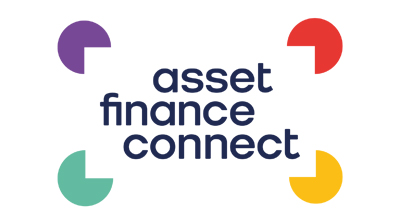
Research by KPMG, the audit, tax and advisory firm, has found that nearly half of all companies surveyed have not begun to assess the impacts of the new FASB lease accounting standard, which will see most operating leases brought onto the balance sheet for the first time.
The new leasing rules take effect on January 1, 2019, for public companies and one year later for nonpublic companies. KPMG says that since most large companies have thousands of operating leases spread across numerous geographic locations, simply identifying these leases is likely to be a huge undertaking. In its survey, nearly half of respondents needed to pull original lease contract data from more than ten physical locations.
These leases will then need to be abstracted, analyzed, entered into a lease accounting system, validated, and monitored through the lease term as they are accounted for on a company’s balance sheet. KPMG warns that implementing the new standard poses operational and financial challenges for many companies.
“Although the adoption deadline is a few years away, companies should not delay their assessment. To effectively comply with the leasing standard’s requirements, companies will need to properly identify existing gaps and prepare to report several years of data, which takes extensive planning,” according to Dean Bell, KPMG’s advisory lead for leasing.
Implementation challenges
Few companies have conducted an inventory of their leases or even formed a project team to help implement the new leasing rules, according to the survey. Having adequate IT systems in place was recognized as the most significant challenge.
While 49% of the survey respondents indicated that they have started assessing the impacts of the leasing standard, less than 15% have completed a lease inventory and only 5% have performed an accounting assessment. Additionally, more than 50% of respondents have not yet established a program management team, which KPMG identifies as one of the very first steps needed in the assessment phase.
According to KPMG’s data, 71% of respondents are still assessing the impact of the revenue recognition rules, which are also changing alongside the new leasing standard, and only 7% have begun to implement the rules. The main barriers to progress are competing internal business priorities, human resource constraints and financial limitations
Bell said: “Leasing is not core to most businesses, so companies may not have an existing lease inventory system to capture the key data required under the new standard. Identifying, analyzing and disclosing the effects of recording leases on the balance sheet are a series of exercises that alone will take significant time, in addition to the lead time required to install a new system.”
“Many companies should consider employing an inventory system as soon as possible and assembling a cross-functional team of personnel to understand broader organizational impacts,” he recommended.
Escalating costs
Companies that are not able to wrap up their assessment in the near future may find themselves challenged to design and implement process and system changes before the effective date, KPMG warns. These companies will be forced to rely on manual processes and manual controls when they “go live,” delaying the introduction of new systems or other automated processes until sometime after the effective date.
KPMG found that most respondents are estimating that the total cost of implementation will be less than $1 million; however, the firm says that as companies complete their assessment activities and begin designing and implementing a solution, cost estimates will likely increase.
While few companies had made detailed cost estimations, the majority (70%) said implementation would cost less than $500,000. KPMG says that given that most survey respondents have not yet started analyzing the leasing process or assessing IT system requirements, many companies may be setting unrealistic budget projections for their implementation efforts. Considering that the time needed to identify, read, interpret, abstract, and report one single lease can take four to ten hours, there will likely be a significant amount of financial investment above and beyond the IT systems which many have failed to take into account.
The survey also showed that 63% of respondents have not involved their tax professionals in their assessment or implementation activities, which KPMG describes as “concerning” as the firm believes tax is an area that will require attention.
KPMG surveyed more than 140 companies, representing all major industries, in spring 2016. Nearly 80% reported revenue of $1 billion or more, with three quarters (76%) public and 24% privately held.








